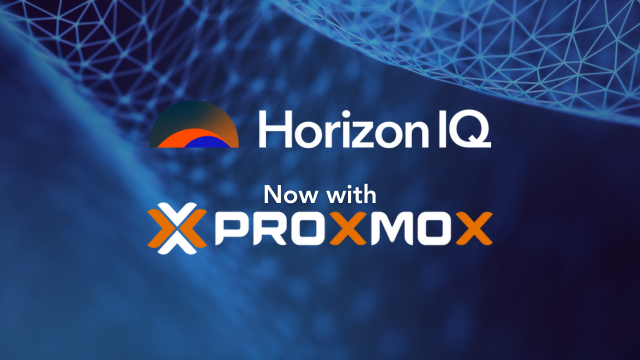
Proxmox Backup Server: What It Is and Why You Should Use It
When it comes to virtualization and backup management, Proxmox Backup Server (PBS) stands out as a robust solution tailored for professionals seeking efficient, scalable, and secure backup options.
Whether you’re managing virtual machines, Linux containers, or physical hosts, PBS is a powerful tool designed to optimize storage, streamline backups, and ensure data integrity.
Let’s dive into the technology, features, and benefits of PBS, offering insights into why it’s a compelling choice for modern IT infrastructures.
What Is Proxmox Backup Server?
Proxmox Backup Server is an open-source backup solution developed to support various environments.
Built on the Debian Linux distribution, it features extended capabilities such as out-of-the-box ZFS support and a reliable Linux kernel 5.4 LTS.
PBS is licensed under the GNU Affero General Public License (AGPL), version 3b, which remains free and modifiable for users.
Key Features at a Glance
- Incremental backups: Efficiently captures changes after the full backup to minimize storage usage
- Data deduplication: Reduces redundant data, saving significant disk space
- Zstandard compression: Speeds up backups while maintaining storage efficiency
- TLS 1.3 encryption: Ensures secure data transfer over networks
- AES-256 encryption: Protects backup data at rest, even on untrusted servers
- REST API: Enables third-party integrations and automation
- Web-based GUI and CLI: Simplifies management for users with varying technical expertise
A Brief History
Proxmox Backup Server was conceived in October 2018 to address the inefficiencies of the existing vzdump backup tool used in Proxmox Virtual Environment (VE).
After two years of development, the first public beta was released in July 2020, followed by a stable version in November 2020.
The introduction of the PBS marked a significant improvement in backup strategies for Proxmox VE users, offering incremental backups, deduplication, and a more modern approach to data management.
What Is the Technology Behind Proxmox Backup Server?
Proxmox Backup Server is primarily written in Rust, a general-purpose programming language known for its performance and safety.
The modern choice enhances PBS’ efficiency and lightweight nature. This enables it to run on minimal hardware setups, such as an old PC or a compact mini-server.
Data Deduplication: A Game-Changer
One of PBS’ standout features is data deduplication, which involves splitting data into chunks and identifying duplicates for:
- Reduced storage requirements
- Faster backups by only transferring changed data
- Optimized network bandwidth usage
How do Proxmox Backup Servers Operate?
PBS uses a client-server model:
- The server stores the backup data
- The client tool operates on various Linux systems, transmitting data to the server
Installation
PBS is installed on bare metal using an ISO image, which includes:
- A user-friendly web GUI for easy management
- A command-line interface for advanced users
- A comprehensive REST API for automation and integration
For optimal reliability, the PBS is best deployed on a dedicated physical machine. While virtualization is possible, it introduces a dependency risk if the host system experiences downtime.
Incremental Backups
The first backup is a full backup (capturing all data). Subsequent backups are incremental, transmitting only the changes since the last backup. This method significantly reduces:
- Backup time
- Storage usage
- Network bandwidth consumption
Security
PBS prioritizes security with:
- TLS 1.3: Protects data during transmission
- AES-256 encryption: Safeguards data at rest, ensuring even an untrusted server cannot access sensitive information without decryption keys
Retention and Pruning
Administrators can define a data retention policy to manage storage effectively. PBS removes expired data in two steps:
- Pruning: Deletes outdated backup indices
- Garbage collection: Physically removes orphaned data chunks from storage
Integration with Proxmox Virtual Environment (VE)
For users of Proxmox VE, Proxmox Backup Server is tightly integrated, offering seamless backup capabilities:
- Deduplicated backups of QEMU VMs and LXC containers
- Fast backups using QEMU dirty-bitmaps, which track changes without rescanning the entire disk
Adding PBS as a storage backend in Proxmox VE involves:
- Configuring a data store on the PBS.
- Connecting PVE to the PBS server using a dedicated backup account.
- Scheduling backups with encryption and retention policies.
Why Use Proxmox Backup Server?
If you need a robust backup solution for your IT infrastructure, here’s why PBS stands out:
You should be using Proxmox Backup Server
1. Storage Efficiency
With data deduplication, you can reduce storage requirements dramatically. For example, a user backing up machines to a network file system (NFS) reduced their storage usage from 7 terabytes to just over 1 terabyte with PBS.
2. Time Savings
Incremental backups save significant time by transferring only modified data — reducing the workload on both the client and server and enabling faster backup cycles.
3. Security and Compliance
Encryption options, including AES-256, ensure that backup data remains confidential. This is crucial for industries with strict compliance requirements.
4. Flexibility
Proxmox Backup Server supports backups for:
- Virtual machines
- Linux containers
- Physical hosts
- Remote synchronization for disaster recovery
5. Ease of Use
The intuitive web-based GUI and detailed documentation make the PBS accessible to users of all skill levels.
6. File-Level Restores
PBS supports granular recovery, allowing administrators to restore individual files or directories directly from backups.
Limitations of Proxmox Backup Server
While PBS is a powerful tool, it does have some limitations:
- Limited Windows Support: Proxmox Backup Server is primarily designed for Linux environments. Backup of Windows hosts requires third-party solutions.
- Hardware Dependency: For optimal performance, Proxmox Backup Server benefits from high-quality storage devices and redundancy, such as ZFS pools.
- Bare Metal Restore: It does not support bare metal restores. PBS is primarily designed for backing up Proxmox client machines, and currently, it cannot back up the Proxmox VE host server configuration.
- Learning Curve: New users may need time to familiarize themselves with the configuration options and retention policies.
Proxmox Backup Server Summary
PBS is a game-changer for organizations seeking efficient, secure, and scalable backup solutions.
With its cutting-edge features like data deduplication, incremental backups, and robust encryption options, Proxmox Backup Server not only simplifies backup management but also saves significant storage and time.
Whether you’re managing a small homelab or an extensive enterprise environment, Proxmox Backup Server offers the tools you need for data integrity and recovery.
By adopting Proxmox Backup Server, you can streamline your backup processes, reduce costs, and secure your critical data — making it an essential component of any modern IT strategy.
How HorizonIQ Can Help
Deploying a PBS requires careful planning and setup, especially when considering hardware compatibility, storage configurations, and long-term scalability. That’s where HorizonIQ comes in.
Customized Deployment on Private Cloud
HorizonIQ can deploy a Proxmox Backup Server on our private cloud environments. Our expertise ensures that your Proxmox Backup Server installation is optimized for:
- Storage Redundancy: Leveraging technologies like ZFS to ensure high availability and data integrity
- Resource Efficiency: Configuring hardware to maximize Proxmox Backup Server’s performance while minimizing costs
- Security Enhancements: Setting up encrypted backups, secure access protocols, and TLS 1.3 for client-server communication
Seamless Integration with Proxmox VE
We streamline the integration of Proxmox Backup Server with your existing Proxmox VE for a smooth and reliable backup process. Our services include:
- Configuring data stores for efficient backup storage
- Setting up incremental backup schedules and retention policies
- Integrating with Proxmox VE to enable deduplicated and encrypted backups of virtual machines and containers
Future-Proof Your Backup Strategy
With HorizonIQ, you can scale your backup infrastructure as your organization grows. We offer flexible solutions, including synchronization to remote locations and integration with hybrid cloud setups.



